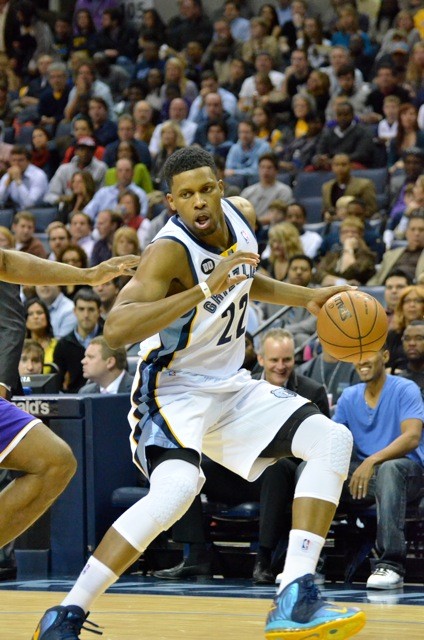On and off for the last week, I’ve been playing with ESPN.com’s NBA Trade Machine, looking for potential scenarios that might work in the event the Grizzlies decide to move Rudy Gay this season. I’ve been banking these ideas for use sometime closer to the trade deadline, waiting to see if there was a stronger indication that a deal was likely.
But, on midday Friday, Zach Lowe at Grantland.com cracked the shell on this topic, confirming what I already half knew and fully assumed — that the team was having at least exploratory talks on the subject of a potential Gay deal — and going through a bunch of possible deals.

- LARRY KUZNIEWSKI
- Inevitable talk about an inevitable Rudy Gay trade has begun.
Unsurprisingly, there’s a lot of overlap between my scenarios and the ones Lowe put out: Anyone who understands the league and how it works and has a feel for what the Grizzlies want and can reasonably expect in return and then starts looking for potential deals is going to come up with a lot of the same stuff. But there are teams he takes seriously that I don’t (Boston) and teams he doesn’t include that I take very seriously (Phoenix).
Made-up trades are fun and, to a degree, instructive. But before that trade-machine chaos, let’s establish why this is an issue now and what the realistic parameters are:
Why a Deal is Probably Inevitable: There’s a good discussion to be had about who the Grizzlies should trade and when they should trade them — a discussion that’s almost certainly ongoing inside the Grizzlies’ front-office — but it’s almost certain that a major deal of some kind will happen in 2013.
Right now, the Grizzlies are about $4 million over the league’s luxury tax line, which is $70.3 million. In 2013-2014, with the line unlikely to change much, they’ll have $58.5 million just in the core four of Gay, Zach Randolph, Marc Gasol, and Mike Conley. Add in guaranteed deals for Quincy Pondexter, Darrell Arthur, and Tony Wroten and it’s over $65 million, and that’s without dealing with Tony Allen’s free agency or potential player options from Jerryd Bayless or Marreese Speights.
While standing pat and paying tax this season is an option, doing so next year — when initial tax rates are set to rise by 50% under the new collective bargaining agreement — has never really been one. And the current payroll trajectory makes it all but impossible to field a team without exceeding the tax.